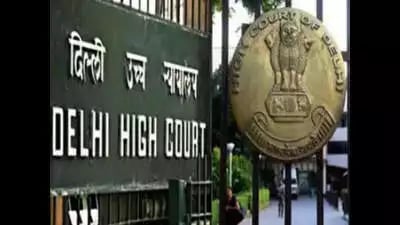Delhi High Court awards Rs 244 crore damages to Ericsson against Lava for infringement of its Standard Essential Patents.
Importance of IP Rights for Industries
4/7/20242 min read


In a significant ruling, the Delhi High Court has directed Indian smartphone manufacturer Lava International to pay damages amounting to Rs 244 crore, along with 5% interest, to Swedish telecommunications giant Ericsson for infringing on the latter's 2G and 3G patents. The court found Lava guilty of violating seven out of eight Standard Essential Patents (SEPs) claimed by Ericsson.
Justice Amit Bansal, presiding over the case, declared that Lava must compensate Ericsson for the damages incurred, including interest at a rate of 5% per annum from the date of the judgment until the full amount is realized. However, the court also partially upheld Lava's counterclaim, leading to the revocation of one of Ericsson's patents related to 'Linear Predictive Analysis by Synthesis Encoding Method and Encoder.'
The court emphasized that Lava was deemed an unwilling licensee due to its failure to engage in good faith negotiations with Ericsson, consistently delaying licensing discussions and neglecting to respond to offers or present counteroffers. The judgment highlighted Lava's reluctance to cooperate in the licensing process, evidenced by its lack of response to the court's query regarding its willingness to accept royalty rates similar to those agreed upon by Micromax.
Regarding the calculation of damages, the court acknowledged Ericsson's entitlement to compensation based on the loss of royalty fees it would have received if Lava had executed a Fair, Reasonable, and Non-Discriminatory (FRAND) license agreement at the outset of its business operations. This approach ensures that patent owners are adequately compensated for the royalties they would have earned through licensing agreements.
Furthermore, the court rejected Lava's argument that royalties should be based on the value of the chipset, ruling instead that royalties in mobile devices should be calculated at the end-product level, aligning with industry standards and legal precedents.
Justice Bansal emphasized the importance of the comparable licensing approach for determining FRAND royalty rates, emphasizing that rates negotiated between parties in similar circumstances should serve as the benchmark.
In addition to ordering Lava to pay damages, the court directed Ericsson to receive additional court fees on the differential amount awarded within three weeks. The court also instructed the release of the amount deposited by Lava in fixed deposit, along with accrued interest, after deduction of taxes, in favor of Ericsson.
Ericsson's lawsuit against Lava centered on the infringement of several patents, including the adaptive multi-rate speech codec, which enhances speech quality and conserves bandwidth, and features related to multiservice handling by a single mobile station in 3G technology.
Standard Essential Patents (SEPs) are crucial for implementing industry standards, particularly in telecommunications and technology sectors.
This landmark judgment (Lava International Ltd. v. Telefonaktiebolaget LM Ericsson, CS(COMM) 65 of 2016, decided on 28-3-2024) underscores the importance of respecting intellectual property rights and fair licensing practices in the smartphone industry.